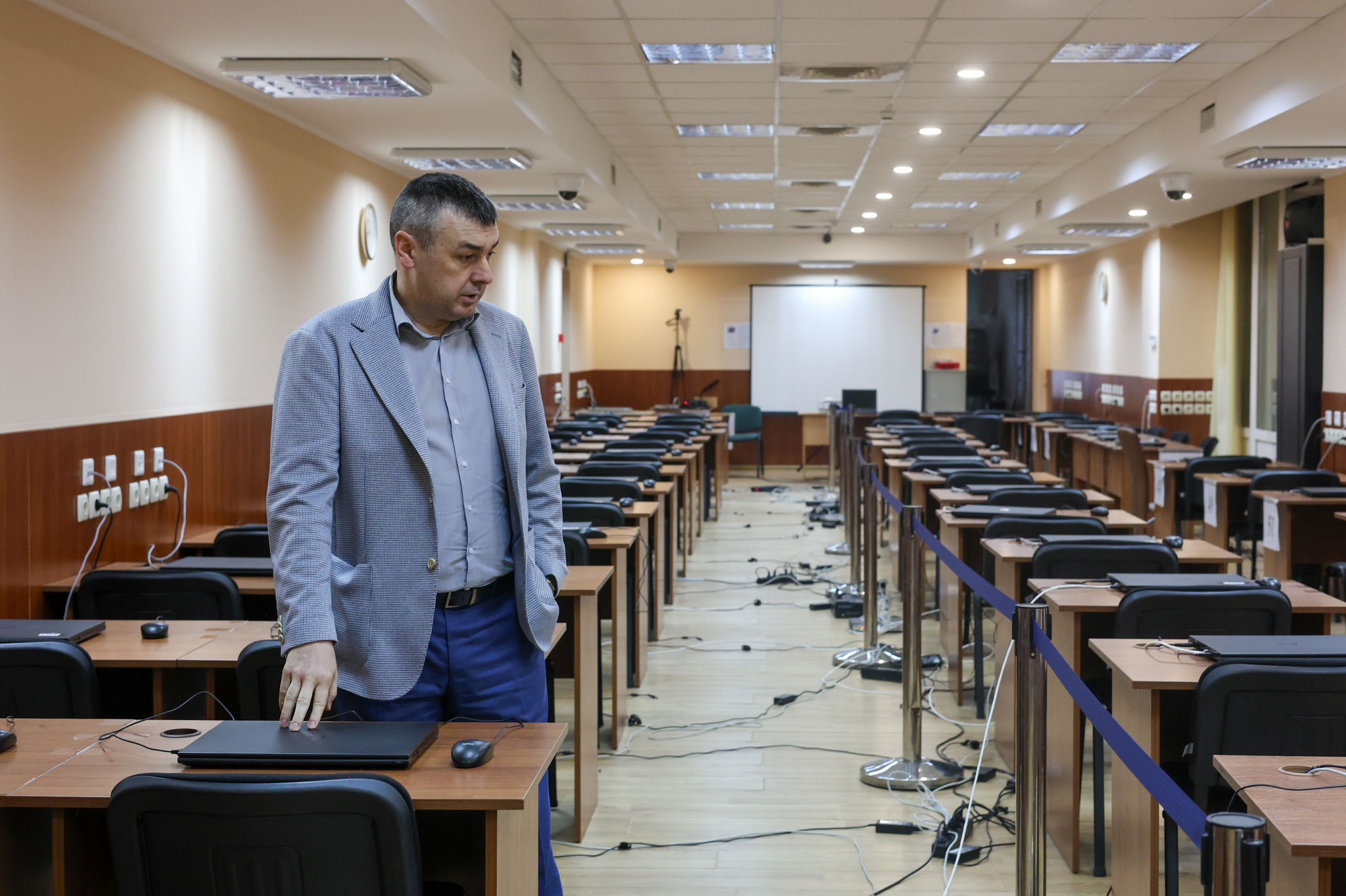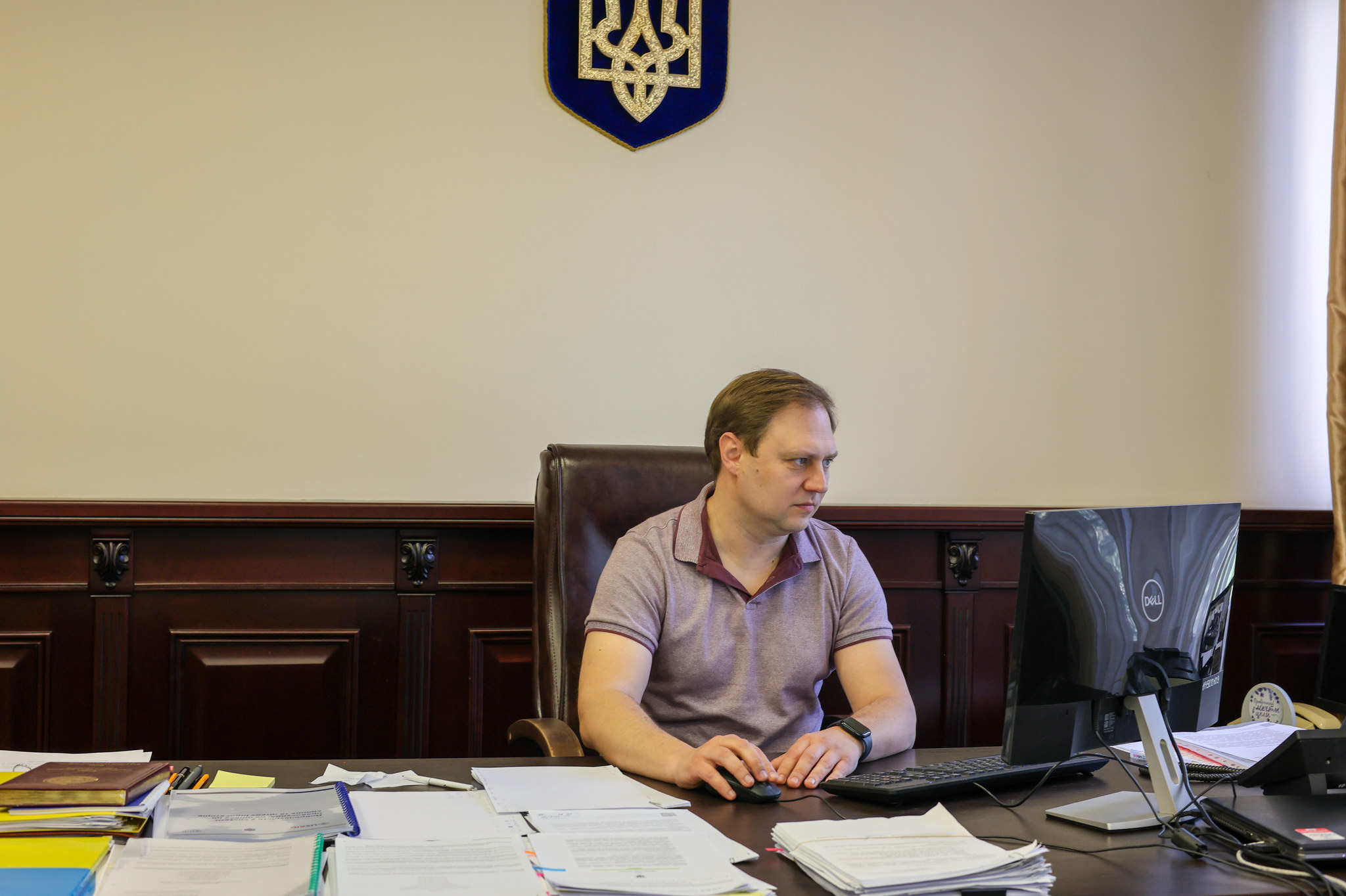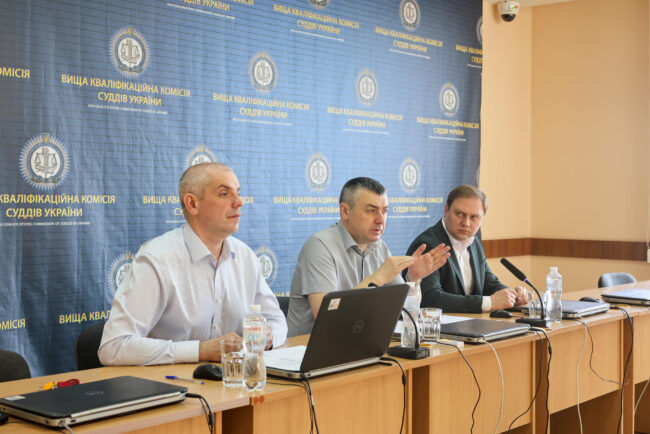KYIV, UKRAINE — In April 2024, the High Qualification Commission of Judges of Ukraine voted to retain Judge Pavlo Kovalenko. This was in spite of a recommendation from the Public Integrity Council, which assists the commission in determining whether a judge is ethically compromised, that Kovalenko be removed from the bench.
Kovalenko, the council report states, could not explain the origins of his family’s extensive property holdings and luxury vehicles. The real estate, Kovalenko claims, is funded by his mother, a retired beekeeper, and his mother-in-law, who has no known income.
It was not the first time the commission overruled the watchdog’s concerns. Nor would it be the last. Commission Chair Andriy Pasichnyk told Global Press Journal that he cannot disclose his colleagues’ motivations for disregarding the Public Integrity Council.
Following the 2013-14 Revolution of Dignity, the Ukrainian government in 2016 established multiple departments to combat corruption in the judiciary. The High Qualification Commission of Judges was initially established in 2010 but later dissolved, only to be re-created in 2021. Now, it vets and forwards a list of approved candidates to the High Council of Justice. The Public Integrity Council reviews the backgrounds of candidates for judicial positions to help the commission make the right decisions.
But an examination of the commission’s actions raises concerns about the body’s ability — or even willingness — to act as a credible filter to screen out corrupt candidates for judgeships.
Checks without balances
The system of judge selection in Ukraine is intentionally multi-tiered. The Public Integrity Council, an independent body of civil society representatives, conducts the initial assessment of candidates. If there are facts in the biography of a judge that indicate dishonesty, the council sends its negative assessment to the High Qualification Commission — which can affect the appointment of a judge during a plenary vote. Final appointments are approved by the High Council of Justice.
Under the law, if the council issues a negative assessment of a judge, the commission can override it only with a qualified majority — at least 11 of its 16 members. In theory, this sets a high bar. But in practice, it hasn’t stopped the commission from advancing judges deemed by the council to have questionable ethics.
Since November 2023, the Public Integrity Council has issued 189 negative assessments out of 297 completed evaluations. More than 100 judges have advanced to the next stage despite serious integrity concerns.
One such case is Judge Pavlo Horbasenko, chair of the Kyiv Oblast Commercial Court. In November 2024, his wealth and family business ties in occupied Crimea raised red flags. Yet, after a brief session with only one question from commissioners, the High Qualification Commission voted 10 to 4 in favor of retaining him, offering a judicial appointment despite not having enough votes to legally do so.



Vetting the vetters
Among the most influential figures on the commission is Ludmyla Volkova. A former judge and founder of a judicial governance nongovernmental organization, she has consistently voted to retain judges with questionable backgrounds — including those sanctioned for repressing protesters during Ukraine’s 2013-14 Revolution of Dignity. Volkova was also the sole commissioner to vote against granting the Public Integrity Council full access to judicial dossiers in June 2024.
Civil society groups have pointed to Volkova’s 2019 purchase of a luxury Kyiv apartment with a loan of 2.7 million Ukrainian hryvnia (about US$65,000) from a friend — a transaction she has yet to fully explain.
Another controversial commission member is Volodymyr Luhanskyi, a judge who claims a doctorate deemed illegitimate by Ukraine’s Ministry of Education. He receives public salary supplements based on his degree, though investigators from the Anti-Corruption Action Center, a Ukrainian nongovernmental organization, found no trace of a dissertation or publications.
Luhanskyi has also faced criticism for closing dozens of drunk-driving cases and failing to sanction lawbreakers, but the High Qualification Commission has failed to take any action against him.
In some cases, a commission panel comprising judges Volkova, Ruslan Sydorovych and Roman Kydysiuk evaluated judges before the Public Integrity Council could weigh in.
“Our members were still reviewing the judges’ dossiers, which contain thousands of pages,” council member Anton Zelinskyi says. “They held the hearings anyway.”
A system at risk
The High Qualification Commission of Judges was rebooted in 2023 through a competitive selection process involving international experts. The new body, for a time, raised hopes. Civil society groups praised increased transparency, Public Integrity Council access to dossiers, and the use of merit-based appointments.
But that momentum is at risk. In June 2025, international participation in the commission’s selection process ended. Future appointments will be proposed by, among other entities, the Ukrainian National Bar Association. That association is led by an ally of pro-Russian politician Viktor Medvedchuk as well as the Council of Judges of Ukraine, which historically is close to discredited judicial elites.
The stakes are high. Ukraine needs a credible judiciary to prosecute war crimes, attract foreign investment, and satisfy European Union accession requirements. The EU has repeatedly emphasized the need for genuine judicial reform.
The High Qualification Commission’s independence has also come under pressure from state institutions. In March, the State Bureau of Investigations raided commission offices and the home of Deputy Chair Oleksii Omelian. He later filed a formal complaint, alleging illegal interference in his work.
“This is an attack on the institutional independence of the Commission,” Omelian wrote in a statement. “Such actions could derail competitions for critical judicial appointments.”



What comes next
In response to criticism, Pasichnyk, the commission chair, insists the body is improving. The commission has streamlined its procedures, digitized its tests, and increased outreach to judicial candidates, he says.
Still, insiders acknowledge that challenges remain. Tensions within the High Qualification Commission panels have led to inconsistency in applying standards. And it won’t be until 2027 that a new commission panel is created.
“Some commissioners are committed to reform,” says Mykhailo Zhernakov, head of the Dejure Foundation, a civic organization focused on judicial reform in Ukraine. “But there is a risk of backsliding. The next composition of HQCJ will be crucial.”

